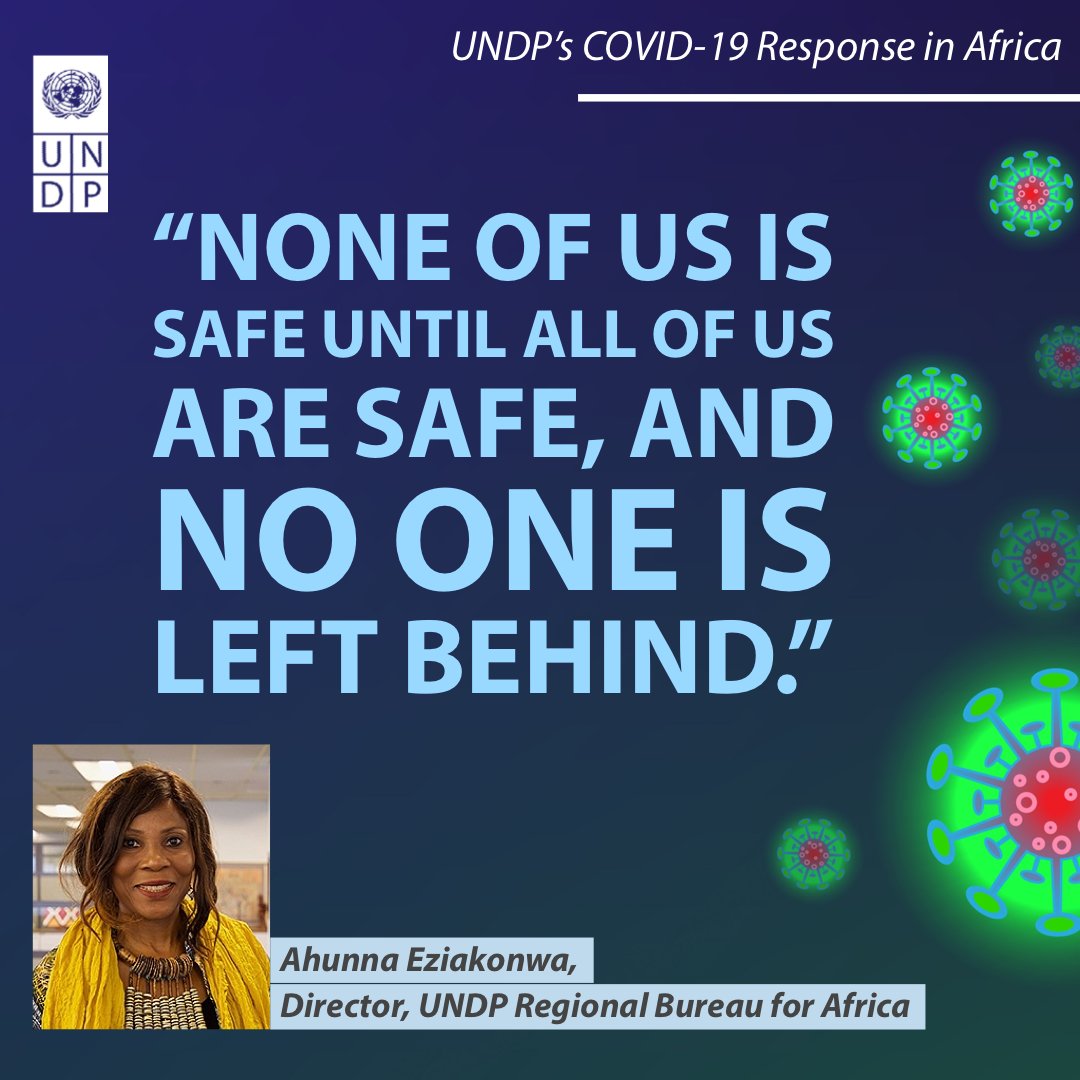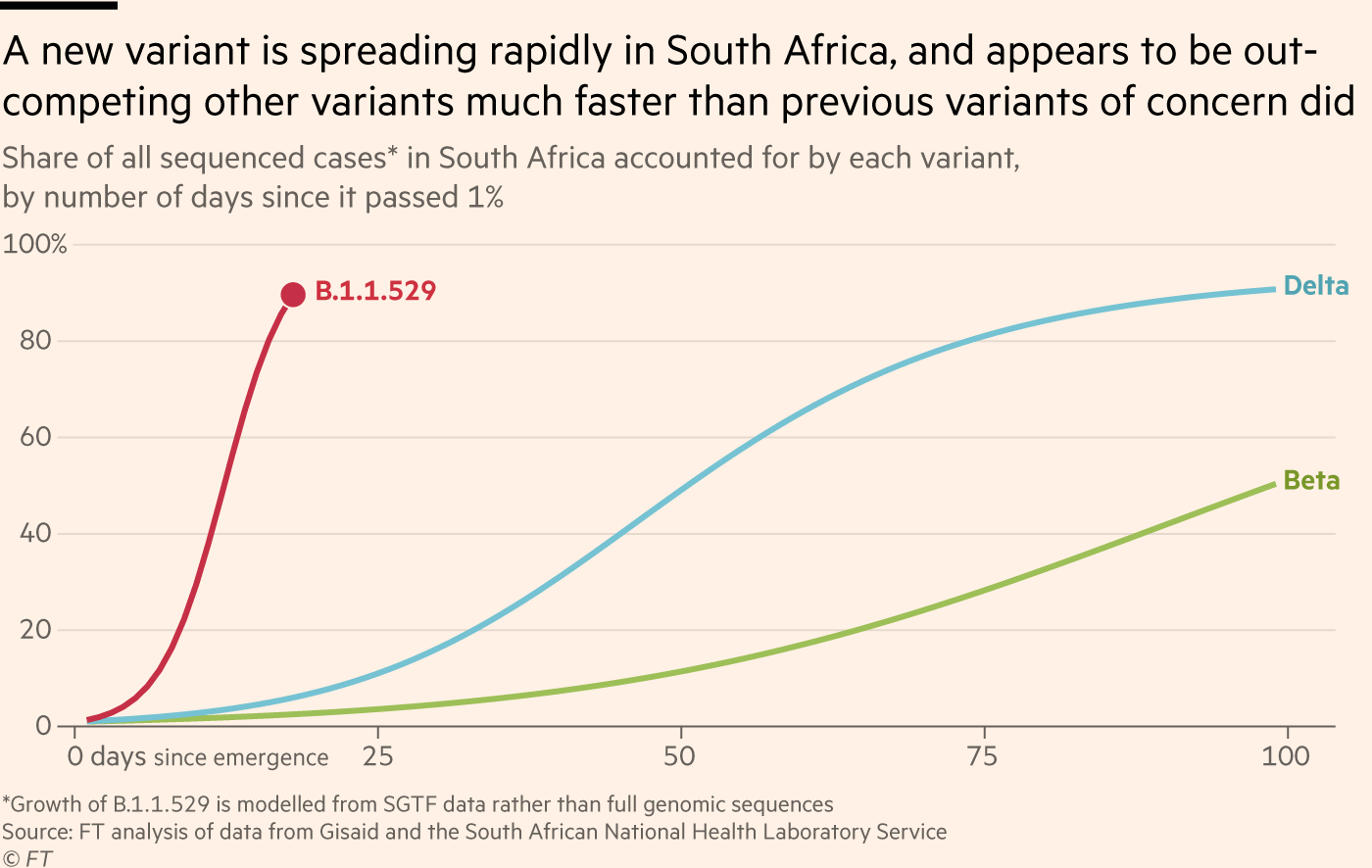'It Was Entirely Avoidable'
JAKE JOHNSON for Common Dreams
The detection of a new, heavily mutated, and potentially vaccine-resistant coronavirus variant in Botswana and other nations is sending shockwaves worldwide as public health officials rush to understand the strain and its possible impact on the global pandemic response.
For vaccine equity campaigners and
epidemiologists, the emergence of another highly contagious coronavirus
mutation is far from surprising given the massive inoculation gap between rich
and poor countries, which has left billions of people across the globe without
access to lifesaving shots—and kept the door open to variants.
Botswana, where the new strain was
first identified earlier this month, has fully vaccinated just 20% of its
population.
Tim Bierley of the U.K.-based advocacy group Global Justice Now said in a statement that the B.1.1.529 mutation is an "entirely avoidable" consequence of deliberate policy decisions by rich countries, which have hoarded vaccine doses and refused to force pharmaceutical giants to share technology with developing nations.
"The U.K. has actively
prevented low and middle-income countries from having equitable access to
Covid-19 vaccines. We have created the conditions for this variant to
emerge," Bierley said, referring to the British government's opposition to
a proposed patent waiver for coronavirus vaccines.
"For more than a year, South
Africa, Botswana, and most countries have been calling for world leaders to
waive intellectual property on coronavirus vaccines, tests, and treatments so
they can produce their own jabs," Bierley noted. "It's a vital
measure that will be discussed at next week’s World Trade Organization
conference. But, so far, the U.K. and E.U. have recklessly blocked it from
making progress."
“There have been countless warnings
that super-variants could emerge if we do not remove artificial barriers to
global vaccination," he continued. "If and when this new variant
starts to tear through the world, remember that the British government has led
opposition to the plan that could have stopped it.”
Srinivas Murthy, an infectious
disease expert, echoed that sentiment.
"Allowing new variants to
emerge and spread, 13 months into the vaccine era, is a policy choice by the
rich world," he argued.
In marked contrast to their
slow-walking of the proposed patent waiver, European countries sprang into
action in response to the new variant, moving to impose fresh
travel restrictions on visitors from southern Africa as
global markets tumbled.
Ursula von der Leyen, president of
the European Commission, said Friday that the body will
"propose, in close coordination with member states, to activate the
emergency brake to stop air travel from the southern African region due to the
variant of concern B.1.1.529."
"Rich nations are very quick to
ban travel but very slow to share vaccines and know-how," said Madhu Pai, Canada Research
Chair in Epidemiology and Global Health at McGill University.
Dr. Ayoade Alakija, co-chair of the
Africa Vaccine Delivery Alliance, tweeted that the renewed push to
cut off travel "was our greatest fear, and [we] were almost
prophetic in predicting that the world would eventually shut Africa out having
denied us access to vaccines."
At a press conference on Thursday,
South African Health Minister Dr. Joe Phaahla said the B.1.1.529
variant—which has thus far been detected in Botswana, South Africa, and Hong
Kong—may have been behind recent coronavirus outbreaks in the small South
African province of Gauteng. (Update: The first case of the
B.1.1.529 variant in Europe was identified in Belgium on Friday.)
"Rest assured that as people
move in the next coming weeks, this [variant] will be all over," he
warned.
Professor Tulio de Oliveira, a
renowned bioinformatician, told the media that in the B.1.1.529 variant,
"what we see is this very unusual constellation of mutations."
"This is concerning," he
said, "for predicted immune evasion and transmissibility."
As Nature reported, "The variant stood out
because it contains more than 30 changes to the spike protein—the SARS-CoV-2
protein that recognizes host cells and is the main target of the
body's immune responses."
"Many of the changes have been
found in variants such as Delta and Alpha and are linked to heightened
infectivity and the ability to evade infection-blocking antibodies," the
outlet noted.

